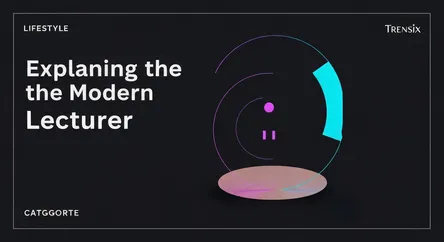Lifestyle
Explaining the Modern Lecturer

Discover the role of a lecturer in higher education, why this academic career is evolving, and how it impacts student learning and research.
What is it?
A lecturer is an academic expert who teaches students at the university or college level. Their primary focus is typically on instruction, course design, and student assessment, distinguishing them from professors who often have significant research requirements. Lecturers prepare and deliver engaging lessons, facilitate seminars, and provide academic guidance to help students master complex subjects. They are specialists in their field, responsible for imparting advanced knowledge and developing critical thinking skills in their students, serving as a crucial link in the chain of higher education.
Why is it trending?
The role of the lecturer is gaining attention due to significant shifts in the academic landscape. The expansion of online and hybrid learning models has forced a reevaluation of teaching methods, requiring lecturers to become proficient in digital education tools. Additionally, there is a growing discourse around the academic 'gig economy,' with an increasing number of lecturers working on short-term contracts. This trend sparks important conversations about job security, fair compensation, and the overall quality and future of university-level teaching.
How does it affect people?
Lecturers profoundly impact students by shaping their educational journey and influencing their future career paths. An inspiring lecturer can ignite a passion for a subject, while a supportive one can provide the confidence needed to succeed. For the academics themselves, the role offers intellectual stimulation but can also involve challenges like heavy workloads and employment instability. Ultimately, the quality and morale of the lecturing staff directly affect the standard of education a country can offer, influencing individual potential and the innovation capacity of society as a whole.